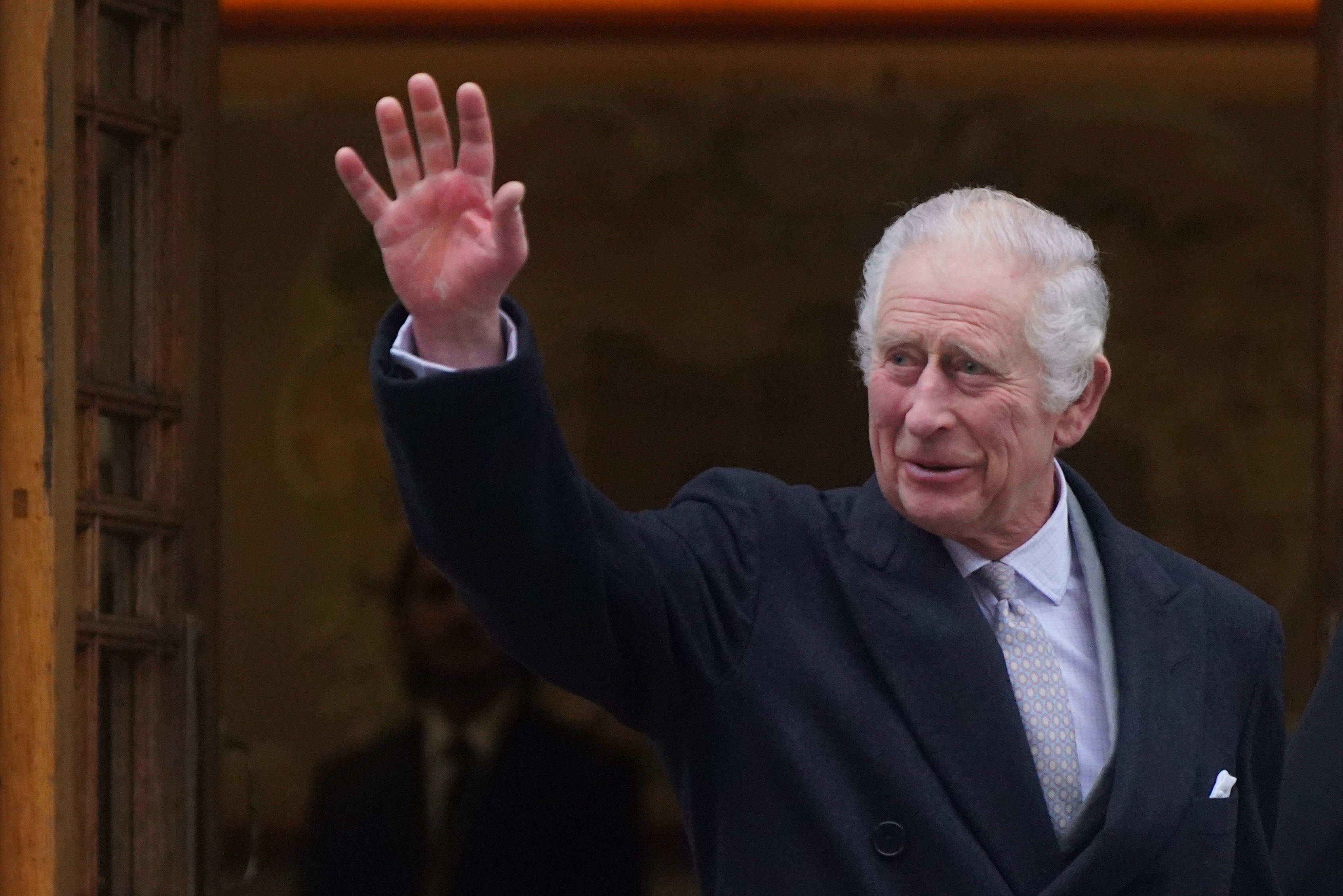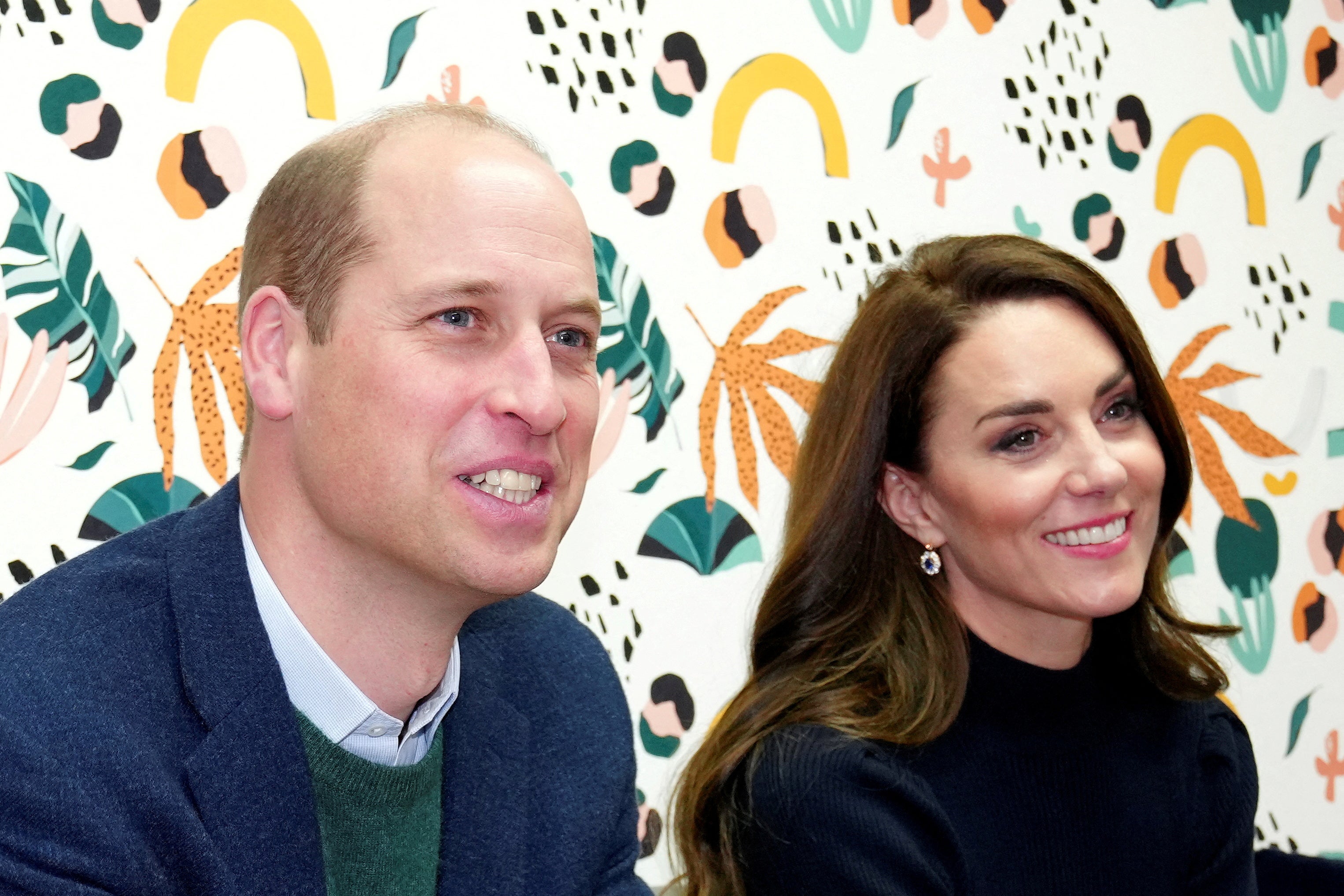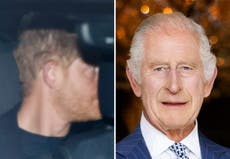How King Charles’s cancer diagnosis will affect his royal duties
The King was diagnosed with cancer and will be stepping back from royal duties, Buckingham Palace announced
Your support helps us to tell the story
From reproductive rights to climate change to Big Tech, The Independent is on the ground when the story is developing. Whether it's investigating the financials of Elon Musk's pro-Trump PAC or producing our latest documentary, 'The A Word', which shines a light on the American women fighting for reproductive rights, we know how important it is to parse out the facts from the messaging.
At such a critical moment in US history, we need reporters on the ground. Your donation allows us to keep sending journalists to speak to both sides of the story.
The Independent is trusted by Americans across the entire political spectrum. And unlike many other quality news outlets, we choose not to lock Americans out of our reporting and analysis with paywalls. We believe quality journalism should be available to everyone, paid for by those who can afford it.
Your support makes all the difference.Following his diagnosis of an undisclosed form of cancer, King Charles has been forced to step away from some of his public-facing royal duties.
The King, 75, was diagnosed with a form of the disease discovered during an unrelated operation for an enlarged prostate at the end of January, Buckingham palace said when they revealed the news last Monday.
Charles was last seen on Tuesday afternoon when he arrived back in London with the Queen for his second round of treatment.
It is the third time he has been spotted since his diagnosis, the first being leaving Clarence House one week before and the second being when he was pictured smiling and waving as he attended a church service in Sandringham on Sunday.
While officials and members of the royal family say that the King “remains wholly positive about his treatment”, he will still have to step back from public duties, with senior royals expected to stand in for him.
So will Charles abdicate, and how will the cancer diagnosis affect his royal duties? The Independent has answered your questions below.

What has Charles been diagnosed with?
King Charles has been diagnosed with cancer. It is unclear what form of the disease he has, but it was discovered during unrelated treatment for an enlarged prostate.
A statement from Buckingham Palace read: “During the King’s recent hospital procedure for benign prostate enlargement, a separate issue of concern was noted. Subsequent diagnostic tests have identified a form of cancer.”
Will the King abdicate?
The statement released by Buckingham Palace has given no indication that the King intends to step down. In fact, it suggests that he hopes to return to his duties in full in the future.
The last British monarch to leave the throne was Edward VIII, but that was for personal reasons when he decided to marry American actor and divorcee Wallis Simpson in 1936.
Charles’ mother, Queen Elizabeth II, did not abdicate despite health struggles towards the end of her life.
How will the diagnosis affect his royal duties?
Charles will be stepping back from public duties during treatment for the disease on the advice of his doctors, according to Buckingham Palace. However, he will continue to oversee state business and official paperwork.
He still carried out his weekly audience with the prime minister last Wednesday, albeit over the phone.
The King returned to London on Tuesday to receive his second round of treatment after he spent a week at his estate in Sandringham. But the palace has made clear the King intends to return to his duties as soon as his health allows.
In the statement, the Palace said: “He remains wholly positive about his treatment and looks forward to returning to full public duty as soon as possible.”

Senior royals are expected to stand in for him, but a shortage of working royals could pose a potential problem in the coming months.
The Prince of Wales returned to public duties last week, however the Princess of Wales is not expected to carry out any engagements until after Easter due to her own health issues.
Both Prince Harry and Prince Andrew are no longer working royals, leaving only the Princess Royal and Prince Edward and his wife Sophie to hold the fort.
The Princess Royal was the first to step up to take on official engagements after the diagnosis when she took on three separate events in one day last Tuesday.
Prince William also returned to royal duties last week after taking a break to care for his family and wife following her abdominal surgery.
How would an abdication work?
If the King were to step down, his eldest son Prince William would automatically become the monarch, with his 10-year-old son Prince George becoming next in line to the throne. This would be followed by eight-year-old Princess Charlotte and five-year-old Prince Louis.
In British history, only four monarchs have ever abdicated, the most recent being King Edward VIII who stepped down in 1936 to marry the twice-divorced socialite Wallis Simpson.

This paved the way for the late Queen Elizabeth II’s father to become king.
While such occurrences are rare, several European monarchs have abdicated their thrones in recent years in favour of their younger heirs.
On New Year’s Eve, Margrethe II announced her abdication as Queen of Denmark, citing recent back surgery as her reason, with her son succeeding her as King Frederik X on 14 January.
In 2014, Juan Carlos I of Spain left the throne in disgrace amid allegations of affairs, indiscretions and alleged financial wrongdoings.
This followed the 2013 abdication of Queen Beatrix of the Netherlands as well as King Albert II of Belgium, while Emperor Akihito left his thrown in Japan in 2019 due to his age and ill health.



Join our commenting forum
Join thought-provoking conversations, follow other Independent readers and see their replies
Comments